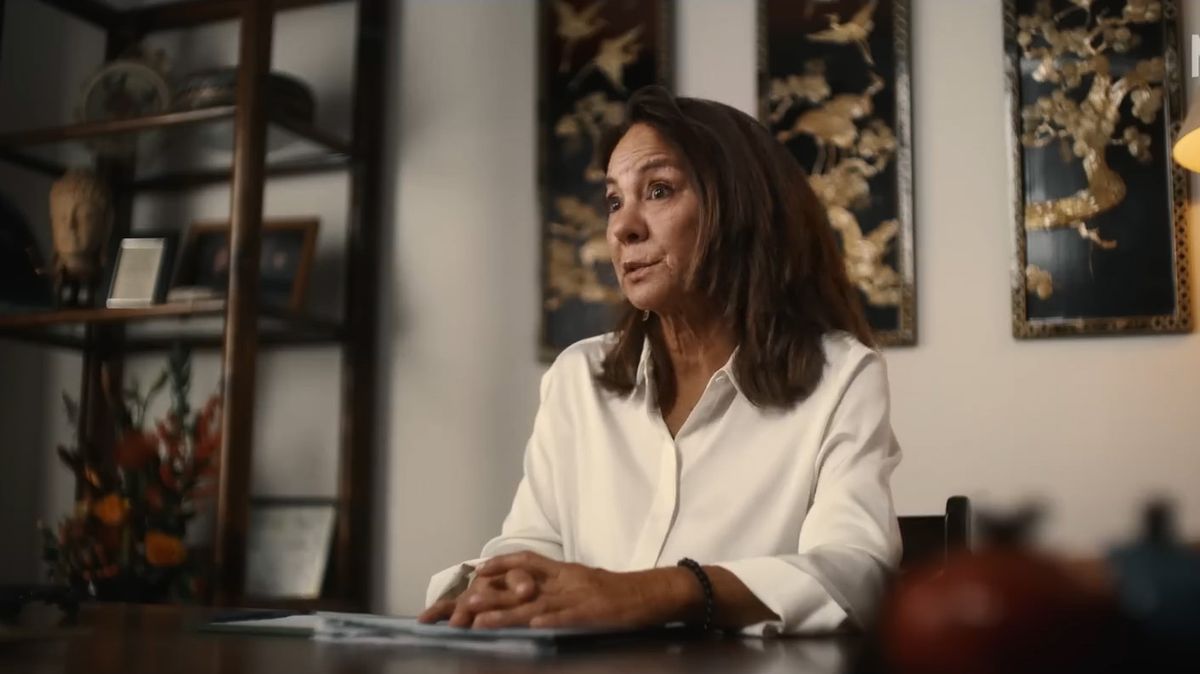So it goes: your resolutions slump mid-January. You never get round to writing those thank-you cards. And Netflix, in its heroic attempt to never let our eyeballs idle, rolls out another true crime documentary. Only this time, perhaps, it’s different. Maybe? American Nightmare, from filmmakers Bernadette Higgins and Felicity Morris who brought us the dating app horror story The Tinder Swindler, dives into a kidnapping case from 2015 which bewildered Californian police, media, the wider public, and perhaps most of all, the couple at the centre of the story.
In 2015, Denise Huskins was kidnapped from the home of her boyfriend Aaron Quinn. The pair were initially drugged, and while Huskins was abducted, Quinn woke up to ransom requests for thousands of dollars over email. As books and films and TV shows (and often real life) have told us about these cases, it’s always the boyfriend. Except, this time – and spoiler alert for an almost decade-old news item – it was not. No matter for the media and police at the time: there was a sordid story to be spun.
Two days later, when Huskins was suddenly released and turned up on her parents’ doorstep, they landed on a doozy: there was no kidnapping! Huskins masterminded it herself! It was labelled as a real-life Gone Girl story: Gillian Flynn’s wildly popular thriller about an unhappily-married woman who fakes her own disappearance had been published three years prior (David Fincher’s film adaptation, with Rosamund Pike in the central role, came out in 2014.) As the nightmarish tale unfolds, told by a series of key players including the police, lawyers, family members and the couple themselves, we hear a layered story which involves mistaken identity, a heap of confirmation bias, and a criminal’s poorly-covered tracks.
American Nightmare excels when it presents these now-familiar narratives and, in carefully-told slow burns, undercuts them. In this respect, the three-part documentary certainly seems classier than the slew of true crime of recent years, providing Huskins with ample screen time to discuss her side of the story. She is never rushed, and she has a lot to say. It is reminiscent of 2016’s Amanda Knox documentary, another Netflix joint which sought to uncover the truth about a woman who suffered at the hands of a messy media campaign. That is good news for anyone who is addicted to true crime but feels a little sick at the genre’s increasingly lurid offerings. At a time when television, podcasts, films and books delight in grizzly stories of bloodshed and abuse – the bloodier the better! –American Nightmare is a sober, occasionally-subversive rejoinder.
But it cannot escape the sliminess of the true crime genre. Perhaps it doesn’t want to. Documentaries can be both educational and entertaining. The tone, especially in the second episode, swings between weird, borderline quirky observations and harrowing accounts of sexual abuse. In painstaking – and often harrowing – detail, Huskins recalls the kidnapping: he is playing French pop music from the other room (the weirdest part, she notes, is that she liked the tunes). That effectively evokes the sensory whiplash of Huskins’ ordeal, but it’s coupled with some schlockier genre elements: the slo-mo recreations of her ordeals are particularly unnecessary.
What American Nightmare cannot square is its Gone Girl-shaped circle. When the police express doubt about the “inconsistencies” in Huskins’ story, Doug Rappaport, Huskins’s lawyer, is shocked. That’s when the FBI ask him whether he’s seen Gone Girl. Rappaport is even more shocked! He wonders: “How could this person who’s charged with investigating crime think that this is like a Ben Affleck movie? That’s Hollywood, this is real life.” It seems that we are supposed to be shocked by this, too. Except the documentary thrives on this tension, criticising the contemporary reporting around the crime, while also helping us understand why that framing was so irresistible. It cuts in scenes from the Fincher film. In some close-ups, you would be forgiven for mistaking Huskins for Pike. The second episode is entitled “Gone Girl”.
So this documentary, to borrow Rappaport’s line, is both Hollywood and real life, and too often it relies of the former’s tropes in an attempt to uncover something about the latter. But in its failure to escape those tropes, American Nightmare succeeds at pointing out an uncomfortable truth: you cannot really document a horror story without being a little horrific.
All three episodes of ‘American Nightmare’ are streaming on Netflix
Henry Wong is a senior culture writer at Esquire, working across digital and print. He covers film, television, books, and art for the magazine, and also writes profiles.













